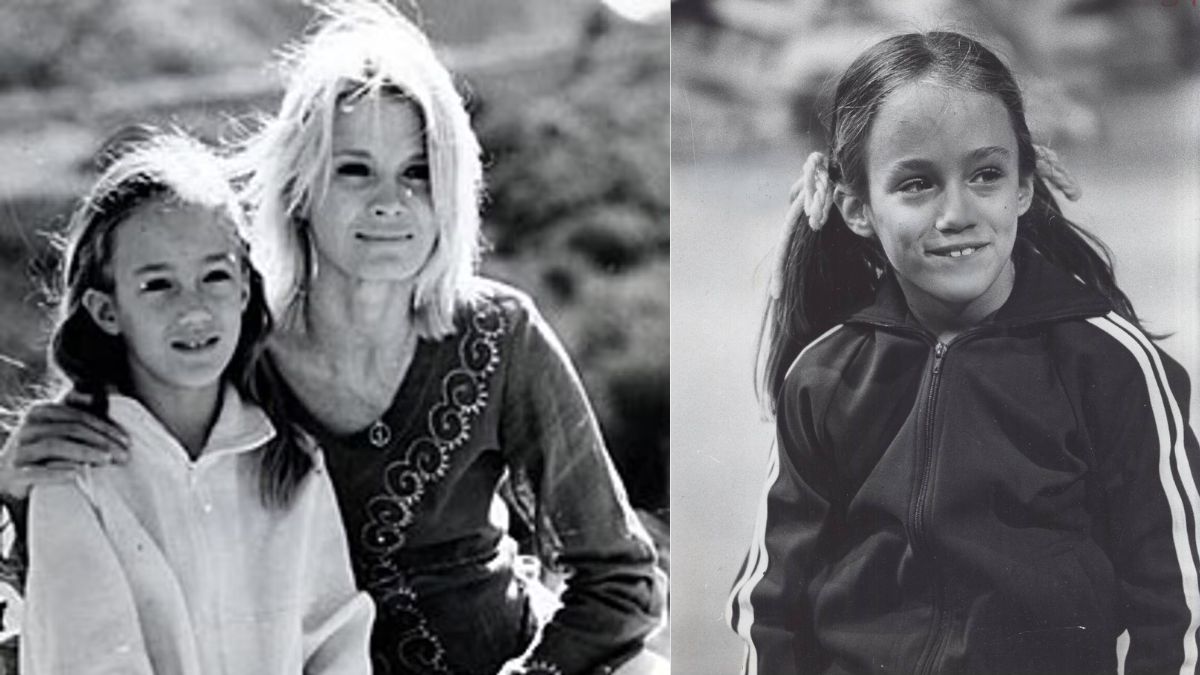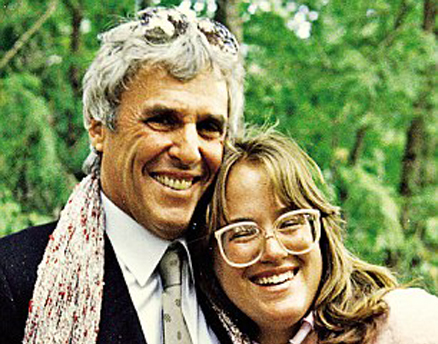The Unspoken Struggles Of Lea Nikki Bacharach: A Life Beyond The Limelight
The name Lea Nikki Bacharach might not immediately resonate with everyone, but her story is a poignant testament to the hidden battles fought behind the glittering facade of Hollywood fame. As the daughter of two iconic figures, legendary songwriter Burt Bacharach and acclaimed actress Angie Dickinson, Nikki's life was inevitably touched by celebrity. Yet, it was her quiet, deeply personal struggles with a neurodevelopmental disorder that ultimately defined her journey, culminating in a tragic end that sent ripples of sorrow through her family and beyond. Her narrative offers a crucial, albeit heartbreaking, insight into the complexities of mental health, neurodiversity, and the profound impact these conditions can have on individuals and their loved ones.
This article delves into the life of Lea Nikki Bacharach, exploring the challenges she faced, the difficult decisions made by her parents, and the enduring legacy of her passing. By examining her story, we aim to shed light on the critical importance of understanding conditions like Asperger's Disorder (now part of the Autism Spectrum), the need for accurate diagnosis, and the vital role of mental health support, especially for those who may appear to have everything but are silently battling profound internal struggles.
Table of Contents
- The Quiet Legacy of Lea Nikki Bacharach
- Personal Data: A Glimpse into Her Life
- A Life Touched by Fame and Fragility
- The Battle with Asperger's Disorder: An Unseen Struggle
- The Tragic End: January 4, 2007
- Understanding Suicide and Neurodevelopmental Disorders
- A Parent's Grief: Burt Bacharach and Angie Dickinson's Loss
- Remembering Lea Nikki Bacharach: Her Legacy and Our Lessons
The Quiet Legacy of Lea Nikki Bacharach
Lea Nikki Bacharach entered the world as the only biological child of two titans of the entertainment industry: Burt Bacharach, the legendary composer whose melodies defined an era, and Angie Dickinson, the captivating actress known for her roles in films like "Rio Bravo" and "Dressed to Kill." Born into a world of glamour and artistic brilliance, one might imagine a life of effortless privilege. However, Nikki's journey was far from conventional, marked by profound personal challenges that remained largely out of the public eye until her untimely death. Her life, though brief, serves as a powerful, albeit somber, reminder that wealth and fame offer no immunity from the deep-seated struggles of the human condition, particularly when confronted with complex neurodevelopmental disorders. Lea Nikki Bacharach's story is one of quiet resilience against an invisible foe, a battle fought largely within the confines of her own mind and the hearts of her devoted parents.Personal Data: A Glimpse into Her Life
To better understand the individual behind the headlines, here is a brief overview of Lea Nikki Bacharach's personal data:
| Attribute | Detail |
|---|---|
| Full Name | Lea Nikki Bacharach |
| Parents | Burt Bacharach (Father), Angie Dickinson (Mother) |
| Date of Birth | 1967 (Exact date not widely publicized) |
| Date of Death | January 4, 2007 |
| Age at Death | 40 years old |
| Place of Death | Thousand Oaks, California, USA |
| Cause of Death | Suicide |
| Notable Struggles | Asperger's Disorder (a form of autism), Mental Health Challenges |
A Life Touched by Fame and Fragility
Growing up as the daughter of Burt Bacharach and Angie Dickinson meant a childhood that was anything but ordinary. While the specifics of Lea Nikki Bacharach's early years are not extensively documented in public records, it is safe to assume she was exposed to a world of creativity, travel, and high-profile social circles. Yet, beneath the surface of this extraordinary upbringing, Nikki was grappling with internal complexities that would profoundly shape her life. The unique environment of a celebrity household can present its own set of challenges for any child, let alone one navigating the intricacies of a neurodevelopmental condition. The pressure of public scrutiny, the frequent absences of busy parents, and the inherent instability that can come with a life in the spotlight might have amplified the difficulties Nikki faced due to her Asperger's. Her parents, despite their fame and resources, found themselves in a deeply personal struggle to understand and support their daughter through challenges that were, at the time, far less understood by the medical community and the public than they are today. This backdrop of fame contrasted sharply with the very private and often isolating nature of her condition.The Battle with Asperger's Disorder: An Unseen Struggle
The core of Lea Nikki Bacharach's life story, and ultimately her tragedy, lies in her lifelong battle with Asperger's Disorder, a form of autism. In the early 2000s, and certainly in the decades prior, the understanding and diagnosis of autism spectrum disorders, including Asperger's, were far less sophisticated than they are today. Individuals with Asperger's typically exhibit difficulties with social interaction and nonverbal communication, alongside restricted and repetitive patterns of behavior and interests. They often possess average or above-average intelligence and may have highly focused interests, but the social world can be a perplexing and overwhelming place. For Lea Nikki Bacharach, this meant navigating a world that often felt alien, struggling with social cues, and potentially experiencing sensory sensitivities that made everyday life incredibly challenging. The "ravages to her brain brought on by Asperger's," as described by her family, highlight the profound internal distress and cognitive load that can accompany the condition, even if outwardly, an individual might appear functional. This constant internal struggle, the effort to conform or simply exist in a neurotypical world, can lead to significant mental health comorbidities, including severe anxiety and depression. It is this unseen struggle that provides crucial context for understanding the eventual outcome of her life.Misdiagnosis and Parental Decisions
One of the most heartbreaking aspects of Lea Nikki Bacharach's story, as revealed by her father, Burt Bacharach, was his belief that "Nikki was not properly diagnosed." This statement underscores a critical issue in the history of neurodevelopmental disorders: the evolving understanding and diagnostic criteria. Decades ago, autism was often narrowly defined, and many individuals who would now be diagnosed with Asperger's or other forms of Autism Spectrum Disorder went undiagnosed or were misdiagnosed with other conditions, leading to inappropriate or ineffective treatments. This lack of proper diagnosis undoubtedly complicated the efforts of Burt Bacharach and Angie Dickinson to provide their daughter with the help she desperately needed. When Nikki was 14 years old, Burt Bacharach felt she needed a change, believing that some time away from her mother might help her "get better." He "convinced Dickinson, and in 1983, they sent their daughter to a special school." This decision, described by Bacharach as a "painful decision to send her away," reflects the desperate measures parents sometimes take when conventional approaches fail and understanding of their child's condition is limited. While made with the best intentions, the impact of such a separation on a young person already struggling with social and emotional regulation is complex and undoubtedly added another layer to her already challenging life. It highlights the immense burden on parents trying to navigate complex medical and psychological landscapes without adequate information or support.The Tragic End: January 4, 2007
The life of Lea Nikki Bacharach came to a tragic and premature end on January 4, 2007. At the age of 40, she "died by suicide... in her Thousand Oaks, California home." Linda Dozoretz, a spokeswoman for the family, confirmed that "she killed herself Thursday night at her condo in Thousand Oaks." The announcement of her passing came in early January 2007, with Burt Bacharach and Angie Dickinson confirming the devastating news via The Hollywood Reporter. The family's statement provided a deeply personal and candid explanation for her death: "She quietly and peacefully committed suicide to escape the ravages to her brain brought on by Asperger's, a form of autism." This raw honesty was a rare glimpse into the profound suffering Nikki endured and the family's desire to convey the true nature of her struggle. It revealed the immense pain that can accompany a neurodevelopmental disorder, not just for the individual, but for their entire family, who witness their loved one's battle with a condition that fundamentally alters their experience of the world. Her passing was a stark reminder that mental health crises, particularly those linked to underlying neurological conditions, require urgent attention and compassionate understanding.Understanding Suicide and Neurodevelopmental Disorders
The tragic death of Lea Nikki Bacharach underscores a critical, yet often overlooked, intersection: the heightened risk of mental health issues, including suicide, among individuals with neurodevelopmental disorders like Autism Spectrum Disorder (ASD), which includes what was formerly known as Asperger's. Research has increasingly shown that people on the autism spectrum are significantly more likely to experience co-occurring mental health conditions such as anxiety, depression, and obsessive-compulsive disorder. These conditions, combined with the inherent challenges of social communication, sensory sensitivities, and executive function difficulties associated with ASD, can create an overwhelming sense of isolation, frustration, and hopelessness. The "ravages to her brain brought on by Asperger's" that her family cited as the reason for her suicide speaks to the profound internal suffering that can be invisible to the outside world. It's not just about social awkwardness; it's about a brain wired differently, often leading to intense emotional dysregulation, chronic stress, and a feeling of being fundamentally out of sync with the world. Without proper diagnosis, understanding, and tailored support, these individuals can find themselves in a desperate struggle for peace. Her story serves as a somber call to action for greater awareness, early and accurate diagnosis, and comprehensive mental health services specifically designed for neurodivergent individuals. It emphasizes that mental health is as crucial as physical health, and support systems must be robust and accessible.The Lingering Question: What More Could Have Been Done?
The passing of Lea Nikki Bacharach inevitably raises the poignant question: What more could have been done? This is a question that haunts many families who have lost loved ones to mental health struggles, especially when an underlying condition like Asperger's is involved. In 2007, and certainly in 1983 when Nikki was sent to a special school, the understanding of autism spectrum disorders was still in its nascent stages. Diagnostic tools were less refined, and therapeutic interventions were not as diverse or evidence-based as they are today. Burt Bacharach's reflection that "Nikki was not properly diagnosed" speaks volumes about the challenges faced by parents in previous generations. They often navigated a complex landscape with limited information, relying on the best available medical advice, which, in hindsight, may have been insufficient. Today, there is a much greater emphasis on early intervention, individualized support plans, and a holistic approach to managing the challenges associated with ASD, including addressing co-occurring mental health conditions. While we cannot change the past, Nikki's story serves as a powerful reminder of the ongoing need for research, education, and improved access to specialized care for all individuals on the autism spectrum, ensuring that future generations have better opportunities for understanding, acceptance, and well-being.A Parent's Grief: Burt Bacharach and Angie Dickinson's Loss
The death of a child is an unimaginable tragedy for any parent, and for Burt Bacharach and Angie Dickinson, the loss of Lea Nikki Bacharach was undoubtedly one of the most profound sorrows of their lives. Despite their public personas and successful careers, their grief was deeply personal and private. The statement released by the family, acknowledging Nikki's battle with Asperger's and her decision to "escape the ravages to her brain," offered a rare glimpse into the depth of their suffering and their desire to honor their daughter's truth. Burt Bacharach, in particular, often spoke about Nikki with a profound sense of love and sorrow. His compositions, often imbued with a sense of melancholic beauty, might have subtly reflected some of the emotional landscapes he navigated in his personal life. The sentiment that "Now, four decades after she was born and after that piece of music was written for her, Lea Nikki Bacharach has been swallowed up by the bad times," encapsulates the enduring pain and the sense of helplessness that can accompany such a loss. It speaks to a parent's enduring hope for their child's well-being, only to be confronted by the harsh reality of an illness that proved too powerful to overcome. Their public acknowledgment of her struggles, though painful, served to humanize a condition that was often misunderstood and stigmatized.Beyond the Headlines: A Call for Empathy and Awareness
The story of Lea Nikki Bacharach transcends the celebrity headlines; it is a universal narrative of struggle, parental love, and the urgent need for greater societal understanding. Her life and death serve as a potent reminder that mental health issues and neurodevelopmental disorders do not discriminate based on socio-economic status or fame. They are complex conditions that require compassion, specialized care, and a robust support system. Her family's candor about her Asperger's and the reasons for her suicide played a quiet, yet significant, role in destigmatizing these discussions. In a world increasingly recognizing neurodiversity, Nikki's story encourages us to look beyond outward appearances and recognize the silent battles many individuals face. It is a call for increased empathy, for listening to and believing those who articulate their internal pain, and for investing more in research, early diagnosis, and accessible mental health resources for everyone, especially those on the autism spectrum who are at higher risk. Her legacy, therefore, is not just about a famous family's tragedy, but a broader plea for a more informed and compassionate society.Remembering Lea Nikki Bacharach: Her Legacy and Our Lessons
Lea Nikki Bacharach's life, though cut short, leaves behind a profound legacy that extends far beyond her familial ties to musical and cinematic greatness. Her story is a stark reminder of the invisible struggles faced by individuals living with neurodevelopmental disorders and the critical importance of mental health awareness. Her passing highlighted the devastating consequences when such conditions are not fully understood, adequately diagnosed, or sufficiently supported. The lessons from Lea Nikki Bacharach's life are manifold: the evolving nature of medical understanding, the immense challenges faced by parents navigating complex diagnoses, and the urgent need for society to foster an environment of empathy and support for neurodivergent individuals. Her family's courageous decision to speak openly about her Asperger's and its role in her death helped to shed light on a topic often shrouded in silence and stigma. Her memory serves as a poignant advocate for better mental health care, more accurate diagnostic tools, and a deeper societal appreciation for the diverse ways in which human brains are wired.Conclusion
The life and tragic death of Lea Nikki Bacharach offer a compelling and somber narrative about the intersection of fame, family, and profound personal struggle. As the daughter of Burt Bacharach and Angie Dickinson, her life was unique, yet her battle with Asperger's Disorder and its associated mental health challenges resonates with countless individuals and families worldwide. Her story underscores the vital importance of early and accurate diagnosis, comprehensive mental health support tailored to neurodevelopmental conditions, and a compassionate societal understanding of the invisible burdens many carry. Her parents' heartbreaking revelation about her struggles serves as a powerful call to action: to destigmatize mental health conversations, to advocate for greater resources, and to ensure that no one feels the need to "escape the ravages to their brain" in silence. Lea Nikki Bacharach's legacy is a testament to the enduring need for empathy, awareness, and unwavering support for those navigating the complexities of neurodiversity. We encourage you to share your thoughts on this important topic in the comments below. Have you or someone you know been impacted by similar challenges? Your experiences can help foster a more understanding community. For more insights into mental health and neurodiversity, explore other articles on our site.
Lea Nikki Bacharach: Legendary Musical Legacy And Inspiration

Lea Nikki Bacharach (1966-2007) - Find a Grave Memorial

Nikki Bacharach